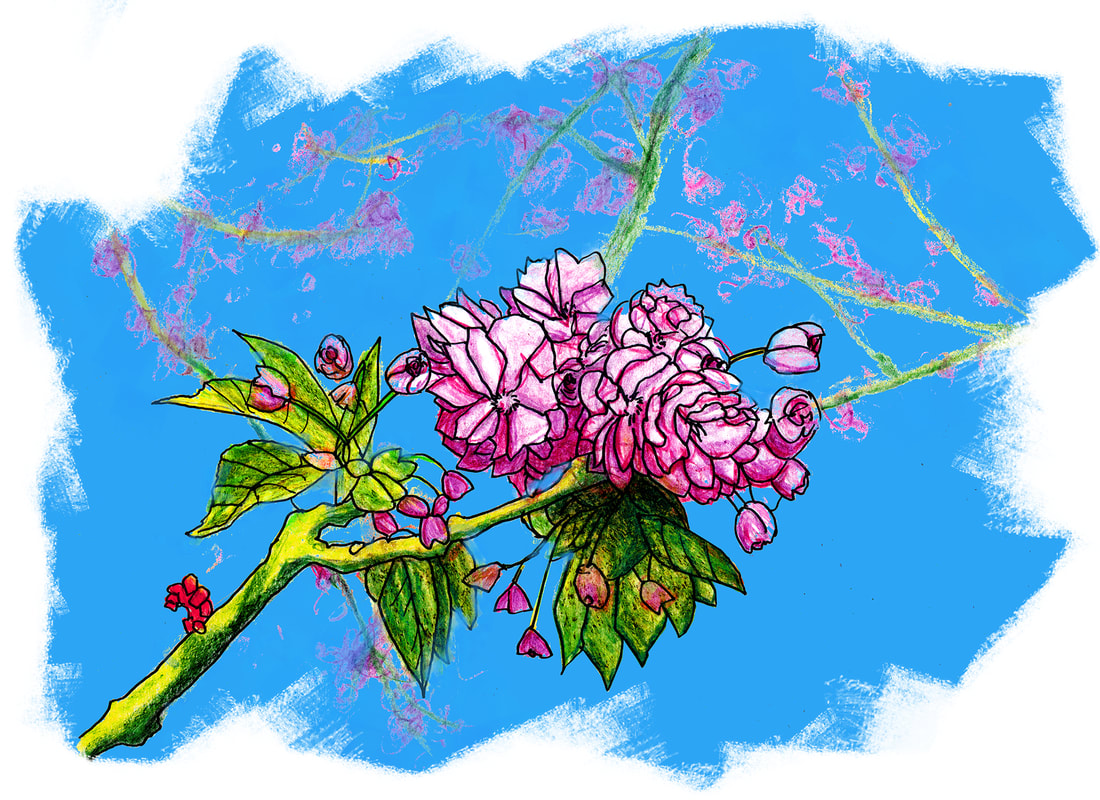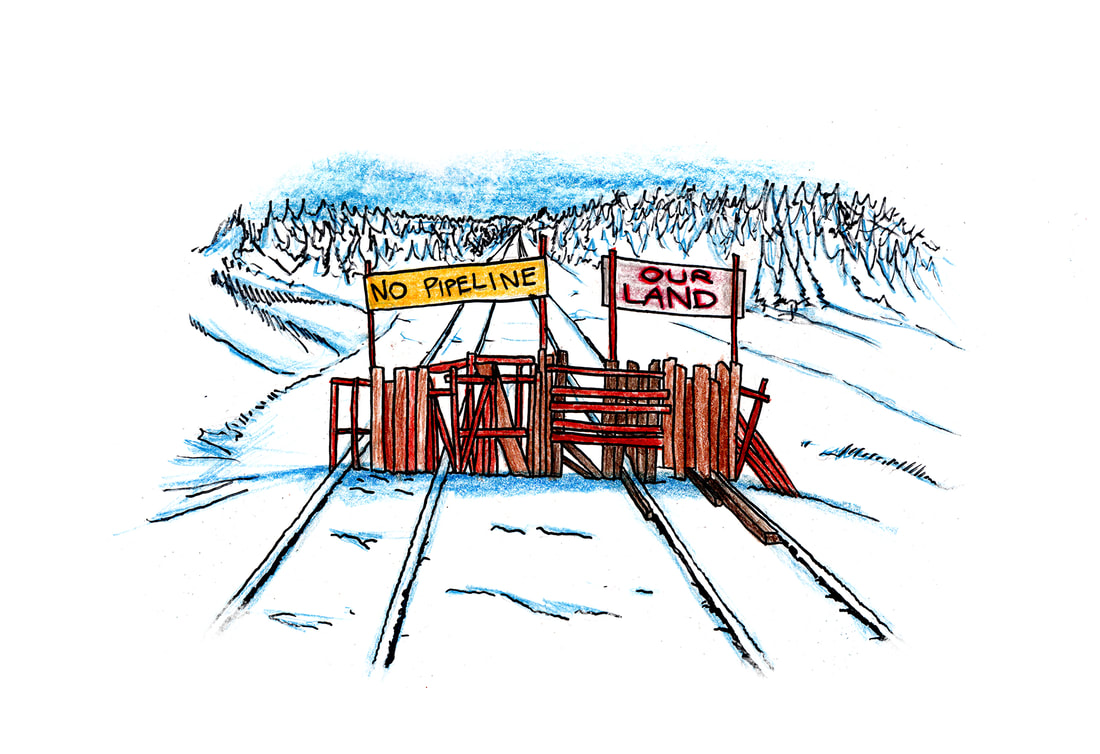|
3/26/2020 1 Comment Wiosna, wiosna...With the spring season officially beginning on Friday, March 20th, I am reminded of how I am definitely not in Canada. March and April in my hometown is not a good place to be. The weather changes drastically from one day to the next. One day could be a beautiful 10 or even 15 degrees but on these days all the snow and ice melts leaving water and mud from one end of the city to the other. If the nice weather continued there would be no issues: just a few days of mud and water but then everything would soon dry out. The problem is one beautiful day is followed by cold days. It can be as cold as 20 below and accompanied with lots of snow. With the cold temperature the water, the slush and the mud freezes leaving ice everywhere. And even worse, this very slick ice can be covered in snow. You know the ice is there, but you don’t know exactly where. Walking and driving anywhere feels like trying to move across a minefield. Can I step here? Is this intersection icy? Will I slip? Will I be able to stop my car? Spring starts so late in Grande Prairie, I was not prepared for green grass and the beginning of blooms so early in the year. For me it seems the weather has been put on hold since October. The nights can be cold and the days are mostly temperate. Nothing like the winters I know, it has been more of an extended fall. I have been waiting for winter, but it doesn’t look like it’s going to come. But I am completely okay with this.
Walking through town, the parks are beginning to show their green colors and even the gardens have the first blooms of the year. It seems strange to me, it isn’t even April and there are flowers. A common spring rhyme you hear with children is “April showers bring May flowers.” This rhyme reflects two things about life in Northern Canada. The first is April has bad weather. It is usually wet, as both snow and rain are common. The grass may turn green, but you won’t see flowers until May.
1 Comment
3/20/2020 1 Comment Szkoła językowa online(Written on March 10, 2020) On Tuesday with the developments of the Coronavirus, Adam and I had a brief discussion of “what ifs.” Neither of us were too worried about the situation in Poland as the confirmed cases were still low. And if worse comes to worst the solution for us is easy: if schools get closed down, we go online. Two days ago this situation seemed to be very “what if,” and if it did happen, it would happen after things got out of control. Yesterday, soon after arriving at work, Adam gave me the news that all public schools in Poland are to be closed for two weeks. I got a crash course on how to run an online class as I had never done it before. My online experience is limited to a few Skype calls and they were not smooth sailing. Technology is not my friend. But my first online class seemed to be fine, albeit awkward. Classes with children and large adult classes are going online as a precaution for us and for them. Also, small groups and individuals currently have online classes. The situation is still changing drastically day to day so we must be flexible. Coming into work today felt very strange knowing that I would only be meeting one student face to face, and even now, I’m not entirely sure if that class will go forward. Knowing this, getting ready this morning, the thought did cross my mind, that maybe I wouldn’t even need to get dressed today. I only need a nice-ish shirt and I’m good to go. Sweatpants all the way. We have talked about potentially not coming into the school, as we could work from home now. But, for me personally with all the chaos, the routine of getting ready and going to work may save my sanity. While working at home does sound attractive on one hand, on the other self imposed “quarantine” would probably make me go stir crazy.
3/5/2020 1 Comment Protesty w KanadzieWhen people talk about Canada, people often talk as though Canada is an oasis: a big beautiful multicultural country. Here, your neighbours belong to many different races, pray to different gods and speak different languages. Unlike our southern neighbours who are well known for their near constant racial confrontations, Canada has loudly preached acceptance and tolerance since the 70’s (when multiculturalism became part of the constitution). But as Canadians will know, the truth is that Canada does have a dirty secret: that racial tensions are alive and well. After years of waiting for the oil pipeline across northern BC, it was recently announced that the project got the ‘go ahead’ and construction was to begin. However, things didn't go as planned. When it was revealed that the elected officials of the Wet’suwet’en agreed to the pipeline but the hereditary chiefs were strongly against it, protests against the pipeline erupted across the country in support of the Wet’suwet’en peoples solidarity. These protests have involved blockades of railway tracks across the country. They have interrupted freight service, passenger trains. Blockades have been blamed for hurting the economy, causing shortages, and (temporary?) job loss in Via Rail and CP Rail companies. Many Canadians are angry and requesting that the blockades be removed by force no matter the cost, many even threatening to take matters into their own hands. Counter Protesters are circulating violent images of Indigenous protesters being run down by trains. Beyond the internet, impatient counter protesters have faced the protesters on their own and taken down the barricades. The government is doing its best to be patient with the protests to avoid an escalation. This decision has been praised by many, but others have understood this patience to be a weakness in the leadership of the Trudeau government. In the 90’s there was a similar situation in Ontario, however the Indigenous protesters were not met with patience but with force. In the end there was one death and the Canadian army was called in. And this is only one example of many violent outcomes when the First Nations of Canada and the authorities (even vigilantes) clash. After a month of increasing tensions, the Wet’suwet’en Crisis across Canada seems to be settling down. But, this clash between Indigenious Nations and the government is not over yet. At the heart of this crisis is not the question of who owns the land, because according to agreements between Indigenous Nations and the Canadian government, this land does belong to the First Nations. The question is how much control do Indigenous people have over their land, which is not only ancestrally theirs but as stated, it is contractually theirs as well. Do big oil companies have the right to dig for oil on the lands of the Indigenous people? Do they have the right to place a 400km pipeline through the territory? Are the Indigenous Nations allowed to refuse them? 3/1/2020 1 Comment Koronawirus dotrze do Lęborka?A popular topic the last few months has been the Coronavirus. In the last week the threat of this sickness has reached closer to home. There has been an outbreak in the Lombardy region of Northern Italy. On February 27, 2020 at 3:45 pm there were 650 confirmed cases and 17 people had died. The total number of cases doubled in only 24 hours. Italy is one of the hardest hit regions outside of China, where the virus was first seen in December. While talks of the Coronavirus were beginning to die down in my area, the close proximity of the most recent outbreak has revitalized the fears of many. Many students are quick to share their fear of the most recent news articles, others are more vague. One student simply said he joked about the Coronavirus yesterday, but he won’t be joking anymore. Another student, her husband is currently skiing in this area of Italy. She is planning to stay in a hotel when he arrives home until she is sure he doesn’t have the virus. Many others, including myself have made plans to travel into other areas of Europe for the Easter holidays. But because of how quickly the situation changes everyday, we are stuck not knowing if we should keep our plans or change them now. In five weeks the virus may no longer be in Europe or it could have spread across the greater part of Europe. The unknown future of the virus is putting the 2020 Olympics into question. Everyday the news is reporting contradictory information about whether or not it will go forward. But on February 27, the Japanese government has asked that all of the elementary, middle and high schools close for a month in an effort to eliminate the virus and to ease the growing fears of a large outbreak within the country. As of February 28, there have been 83 876 cases worldwide. |
AuthorMy name is Madison. I am from Alberta, Canada. I like to read books, go hiking and explore new cities. Even though I am Canadian, I don't watch hockey and I don't like snow. I graduated from The University of Lethbridge in 2018 after studying English Literature and Art History for six years. I have travelled to the Mexican state, Nayarit and to Tokyo, Japan. I hope to travel all over the world. Archives
June 2020
Categories |
Search by typing & pressing enter





 RSS Feed
RSS Feed